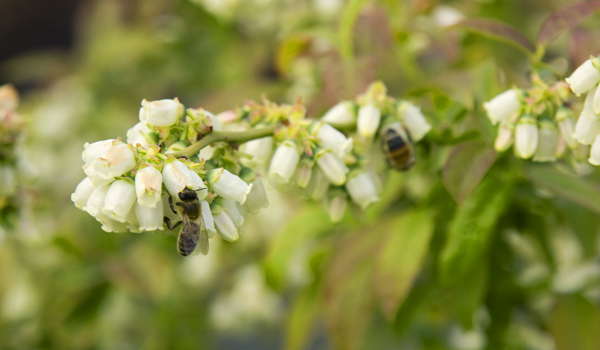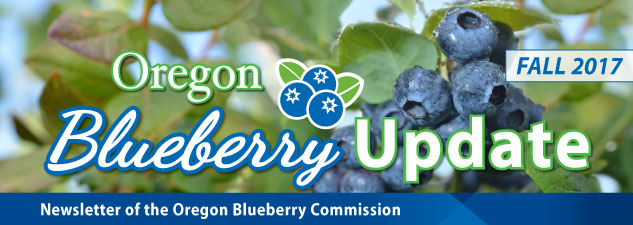
Pollinator Protection Plan Being Organized
Oregon State University’s Andony Melathopoulos and Oregon Department of Agriculture’s Rose Kachadoorian want to put blueberry growers and beekeepers in a room to hash out a practical plan for protecting pollinators.
Doing so, they said, could provide multiple benefits for years to come.
“We want to convene and facilitate a discussion between industries, and we want an active dialogue that is ongoing,” Melathopoulos said. “That is the best way to get ahead of problems.”
Melathopoulos, Oregon’s new Pollinator Health Extension Specialist, said the plan is patterned after the California Almond Board’s work with beekeepers – work that resulted in the development of a set of best management practices that has benefited pollinator health and the almond industry since it was put into action in 2015.
“They had a problem and what they did was convene a very small group of growers, pest control advisors, pesticide registrants and beekeepers, and over six to eight months, they hammered out a set of industry standards that they thought was workable,” Melathopoulos said. “We want to help initiate a similar process in Oregon.
“Oregon State University and the Oregon Department of Agriculture will help facilitate the meeting, but we think growers and beekeepers are already working well together and it is a matter of them pulling together a set of voluntary industry standards that works to their mutual benefit,” he said.
The initiative to get growers and beekeepers working together is part of a mandate enacted by Oregon lawmakers in response to bee die-offs from pesticide poisoning in Wilsonville and Hillsboro in 2013. The legislation directed OSU to develop and plan and conduct education and outreach to try and prevent further bee die-offs.
As part of that effort, Melathopoulos is developing educational materials and doing a media campaign to inform urban pesticide users of key considerations for protecting pollinators. And, in conjunction with the Oregon Department of Agriculture, Melathopoulos is developing tools for commercial pesticide applicators to help facilitate grower efforts to protect pollinators from pesticide exposure.
Frequent label changes in recent years have confused applicator efforts to protect pollinators, he said. “EPA is now going through another set of changes around the language around pollinators and pesticides,” he said. “It is very confusing for an applicator who wants to do the right thing, so we are developing tools that make that easier. We are using a lot more pictures than previous publications that had a lot of text in them. We are going to strip that out and put Oregon agriculture-specific imagery in its place, so people at a glance can see what they need to do.”
As part of that project, ODA is requesting information on residual toxicity of pesticides. “One of the things we want to do is to provide farmers and other pesticide applicators with that information, which will help them with product selection and timing,” said Kachadoorian, who is pesticide registration and certification leader for the ODA. “That will enable people to make their own decisions.
“We think there already is the interest and the concern out there to protect pollinators,” she said. As evidence, Kachadoorian said the department received multiple calls from growers interested in finding out what they could do to protect pollinators after the bee die-offs in 2013. “We just need to provide them with practical things they can do.”
Kachadoorian asked blueberry growers to contact her at 503-986-4651 if they would like more information on the initiative.
|
